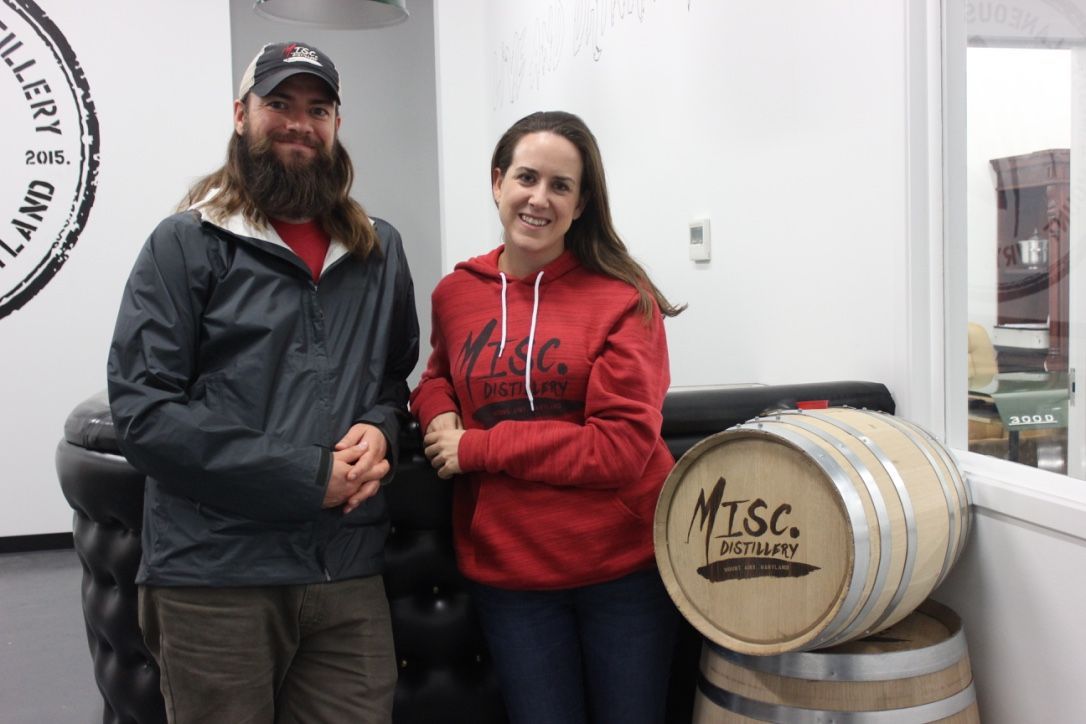By Brandi Bottalico
The Frederick News-Post, Md.
WWR article Summary (tl;dr) Meg MacWhirter and Dan McNeill owners of “MISCellaneous Distillery” in Mount Airy describe their experiences with a mentor from “SCORE”, the non profit organization that helps small businesses with free mentoring and low-cost workshops.
The Frederick News-Post, Md.
Meg MacWhirter and Dan McNeill figured it was a low-risk move signing up to receive feedback on their Mount Airy distillery from a free SCORE mentor.
It was an all-gain move, they learned, gaining a mentor who has kept in touch with them along the way and given them detailed feedback on different stages of their business, from the business plan to the financials and pitching to investors.
“We didn’t really know what to expect,” MacWhirter said. “The very first call we had, we were so grateful and impressed by the thoughtfulness and preparation by Doug [Allen].”
SCORE Frederick is the local chapter of a volunteer organization funded by grants from the U.S. Small Business Administration that helps small businesses by providing them with services such as free mentoring and low-cost workshops.
The national association recently awarded the Frederick chapter the Platinum Award, which recognizes increases in the number of clients served, total services provided to clients and increases in long-term relationships with clients.
There are more than 320 chapters in the United States and six in Maryland.
Charlie Thomas, chairman of Frederick’s chapter, said the organization sees about 25 to 35 clients a month and has 17 members, who are the mentors and administrators for the group.
The majority of its clients are starting businesses in Frederick County, but SCORE Frederick also has clients from other areas. In the past two years, it has started covering Carroll County, where MISCellaneous Distillery is located in Mount Airy.
It was about a year and a half ago that MacWhirter and McNeill first started getting help from SCORE Frederick, and just a few weeks ago, their mentor stopped by to see the distillery for the first time and brought a bottle of wine.
“I feel like Doug was proud of what we were up to,” MacWhirter said.
They said they may not have gotten as honest feedback from friends and family and may have made mistakes if they hadn’t had Allen, a certified public accountant, look over their financials.
Thomas said the national association states 80 percent of mentored businesses exist after five years in business versus only 35 percent of those that do not use a mentor.
The national association emphasizes fostering long-term relationships with clients, he said. The chapter has a few clients who have been with mentors for about three years, but the length of time all depends on the needs of clients. Many people’s enthusiasm, Thomas said, tapers off after they initially meet about a business idea once they realize that it isn’t viable.
Michael Herod recently got into the Frederick Innovative Technology Center for GOeFER, an energy-tech startup creating devices to lower energy use at individual plugs. When he first had the idea for the product, he sat on it for a few months, he said.
After talking to three or four people about the idea, SCORE Frederick came up. Herod reached out, hoping to figure out what to do next. His mentor, Allen, helped him on the business side of things.
“He’s like Yoda for me,” Herod said. “They can fill in the voids you don’t have and do it professionally and free. And I was like, ‘Well, I’m all about free.’ It’s been amazing.”
Since he first reached out, Herod said he has become incorporated, added a partner, joined the incubator and teamed up with an engineer.
Frederick’s chapter is set apart from others in that mentors can meet with clients anywhere that is convenient, whether that’s a coffee shop or a library, Thomas said, whereas other chapters have set hours in specific locations that clients must visit to get advice.
During Thomas’ six-year tenure, the average number of clients each month has remained steady, with an uptick at the beginning of every year. The number of mentors, however, has decreased.
He said mentors leave for various reasons, such as moving or volunteering their time in other areas. On average, the volunteers stay for about three years, which he considers good for a volunteer organization.
“You always have turnover; you have that with any volunteer group,” Thomas said. “We’re always looking for volunteers.”
SCORE Frederick is looking to add more mentors from Carroll County now that it has expanded into that area. Thomas said it also aims to increase the number of public workshops it holds. This year it has four workshops, but next year, it hopes to host eight.
Thomas attributes the success of the chapter to the mentors, who have varying backgrounds, he said.
“It’s a combination. Obviously, we have a nice area to draw from,” he said. “I think Frederick is a very vibrant area and has a huge potential for small businesses that hasn’t even begun to be tapped.”














































































































































































































































































































































































